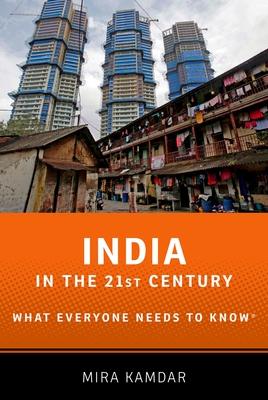An ancient civilization tracing its roots back 5,000 years, the Republic of India was the first of Europe's former colonies to gain independence in the mid-20th century. With institutions of governance and a legal system inherited from the British, as well as the English language, India has the potential to function as a "bridge nation" between Asia and the West, between the advanced economies of the global North and the developing countries of the South. As such, India is set to play a critical role in how our world evolves during the coming decades.
What Everyone Needs to Know(r) is a registered trademark of Oxford University Press.
In a concise question-and-answer format, Kamdar addresses India's history, including its colonial legacy and independence movement; the political and social structures in place today; its rapidly growing economy and financial system; the geopolitical landscape of the 21st century and India's place in global politics; and the environmental concerns faced by the country, among other topics. She explores India's contradictions and complications, from its worringly narrow politics of patronage to its willingness to censor information by banning books and controlling internet content. At the same time, Kamdar celebrates the merging of India's muticultural landscape and deep artistic and intellectual heritage with the dawning of the Information Age and the expansion of mass media, which have made it one of the world's 21st-century cultural powerhouses.
With clarity and balance, Kamdar brings her in-depth knowledge of the country and eloquent writing style to bear in this focused and incisive addition to Oxford's highly successful What Everyone Needs to Know(r) serie
